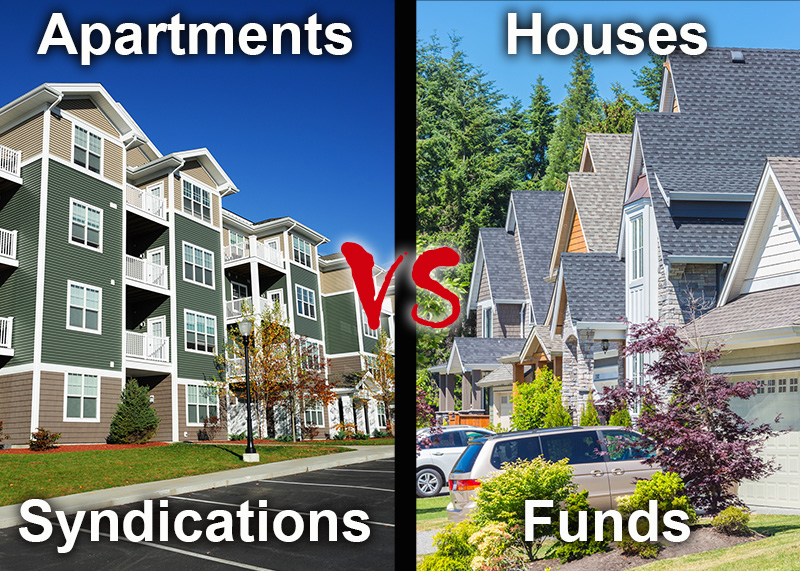Real estate syndication opens up a pathway for limited partners to diversify their portfolios and participate in real estate opportunities overseen by seasoned sponsors.
Real Estate Syndication and Funds for Limited Partners
Real estate syndications and funds for limited partners involve collaborative investment structures where individuals pool their resources to participate in diverse real estate ventures, leveraging the expertise of experienced sponsors to navigate and manage the complexities of the market.
Syndications are tailored for singular property investments, bringing together investors to collectively fund and participate in a specific real estate venture. On the other hand, real estate funds are designed to encompass multiple properties within a diversified portfolio, allowing investors to spread their capital across various assets and benefit from the collective performance of the entire fund.
A real estate investment company will set up a syndication to aggregate capital from limited partners for the acquisition a property. This is usually how commercial properties are purchased by investors. The types of properties include commercial office space, retail centers, mixed use development and multifamily apartments.
Open-End Fund Syndication for Single Family House Investing
In an an open-end real estate fund, investors’ capital is pooled to acquire a portfolio of properties, and the fund remains open for continuous investments and redemptions. Limited partner investors in an open-end fund may receive periodic distributions based on the income generated by the entire portfolio. The fund manager has the flexibility to buy and sell properties within the fund’s portfolio over time to optimize returns and manage risk.
Limited Partner Real Estate Syndication vs Open-End Fund
Multifamily investment opportunities for limited partners usually focus on one property per syndication.
Single-family house investments for limited partners with an open-end fund, allows for greater diversification.
- Syndications are typically structured on a deal-by-deal basis, with specific properties identified for investment. The preferred return provides a level of assurance to investors, prioritizing their returns before the sponsors participate.
- Open-end funds offer diversification across multiple properties within a single fund, providing investors with exposure to a broader real estate portfolio. However, they may or may not have the same emphasis on a preferred return structure.
In summary, the key difference lies in the structure and focus of the investment vehicles. Syndications are often deal-specific, emphasizing a preferred return to investors in each deal, while open-end funds offer diversification across a portfolio of properties without necessarily prioritizing a preferred return structure. Investors should carefully consider their investment goals, risk tolerance, and preferences when choosing between these structures.
To learn more about John Marion and Alpha Dog Capital see the show notes and visit our website at AlphaDogCapital.com.
You can always check the show notes of any episode to learn more about each guest and how to connect with them.
Please don’t forget, we are not investment advisors and we do not give investment advice. Always do your own due diligence!
Thanks for joining me and stay tuned for upcoming episodes of the Alpha Dog Capital Deal Flow Channel.
Alpha Dog Capital
Visit Our Website
Let’s Talk!
Schedule a call with John Marion:
https://calendly.com/johnmarion/alpha-dog-capital-intro-call






